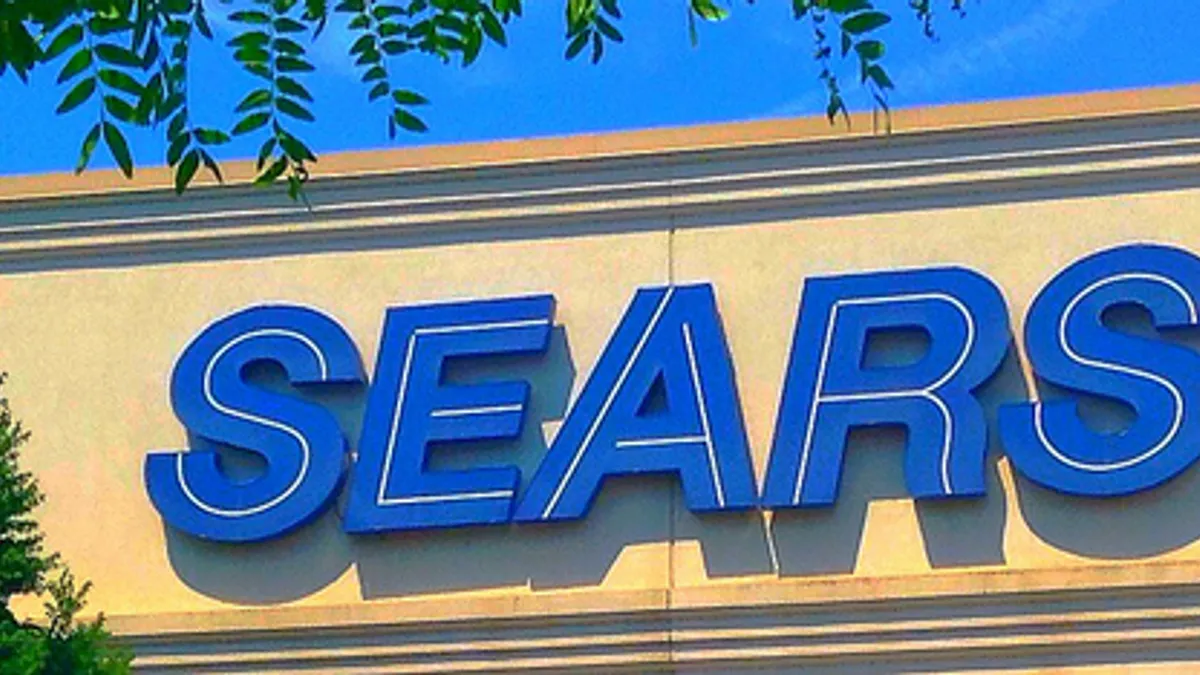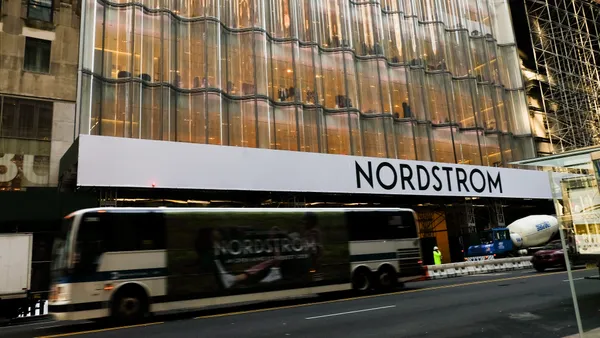Dive Brief:
-
Sears Holdings Corp. in mid-September will close another 18 Sears stores and two Kmart stores, a company spokesperson told Retail Dive. The company’s real estate investment trust, Seritage Properties, was notified of the plan and filed a notice with the Securities and Exchange Commission on Friday. Liquidation sales will begin by June 30, the spokesperson said in an email.
-
The closure of unprofitable stores is part of the retailer’s ongoing strategy of “strategically and aggressively evaluating our store space and productivity,” the spokesperson said, “and [we] have accelerated the closing of unprofitable stores as previously announced.”
-
The affected stores are in 14 states: California, Florida, Illinois, Kansas, Louisiana, Maryland, Michigan, Minnesota, New Jersey, New York, Ohio, Rhode Island, Texas and Wisconsin, according to a report from Business Insider. Sears has nearly halved its store footprint since 2012, from 2,019 then to fewer than 1,200 this year, once all planned closures are made.
Dive Insight:
Sears and Kmart stores are folding at a record pace, a necessary strategy of attrition, the retailer says, to maximize productivity. It's a remarkable decline for the former rivals, which once dominated the retail landscape. Sears and Kmart were once go-to department stores with Amazon-like levels of merchandise assortment and customer loyalty. The closures come on top of hundreds announced in recent months.
"We understand that members may be disappointed when we close a store, but our Shop Your Way membership platform, websites and mobile apps allow us to maintain these valued relationships long after a store closes its doors," the company said in a statement emailed to Retail Dive. "As a result, we hope to maintain and even grow our relationships with the members who shopped [a closing] location. Our members and customers can also shop at our other Sears and Kmart locations."
Despite mass closures, the company has announced a few store openings as well, including the grand opening of its first Sears Appliances & Mattresses store Thursday in Pharr, TX. That effort builds on the success of its new Ft. Collins, CO Sears Appliances store last year – a location the company says "has surpassed projections."
But Sears, along with Macy's and J.C. Penney, are "future-proofing their offerings by closing stores," according to a new report from retail think tank Fung Global Retail & Technology. "We estimate that these closures will result in a total of $2.5 billion in annual sales being freed up for alternative retailers to grab," according to the report. "Approximately $1 billion of that total will come from Macy’s closures, $1 billion from Sears and Kmart closures, and $500 million from J.C. Penney closures, we estimate. Based on shopper preference data, we expect Macy’s to retain the highest share of sales when it closes stores and Sears to see the lowest sales-retention rates."
Around $1.5 billion, or 60% of those relinquished sales, will be in the apparel category, which includes footwear and accessories, Fung said. Kohl's and J.C. Penney will also benefit from the closures, (even though J.C. Penney is also shuttering underperforming locations), with J.C. Penney particularly benefiting from Sears closures due to their customer overlap. Macy's, on the other hand, whose customers tend to be more concerned with brands and choice, and less so with price, will likely lose sales to Amazon. Target, Kohl’s, Best Buy and J.C. Penney also benefit from Macy's closures, according to the report.
Fung's research validates Sears' hopes that customers whose local stores close will gravitate to its website and other locations, but Sears and Kmart together are likely to retain just 17% of their former sales volume, compared to 22% for J.C. Penney and 25% for Macy's.















